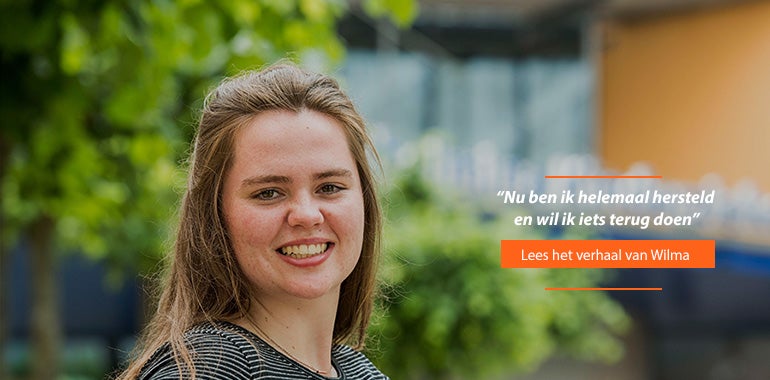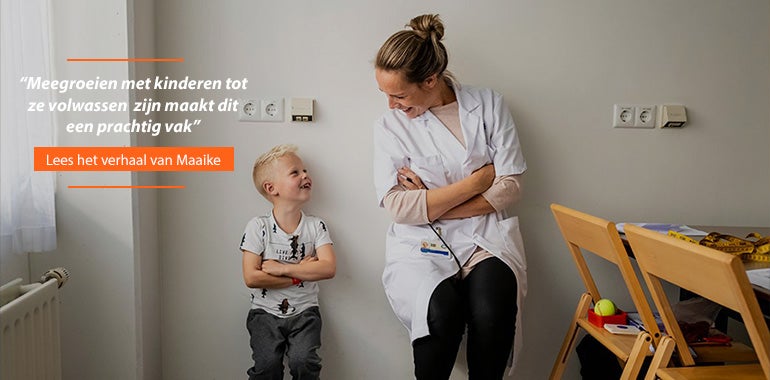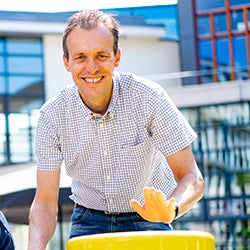About 1 in 100 newborn babies has a congenital heart defect. The impact of this on their lives is great. At the UMC Utrecht and WKZ, we are studying how to limit the impact: for now and in the future. We call this life-course care. See here what life-course care means and how research in this field contributes to the best possible quality of life.
Our specialists explain it briefly.
What is the impact of a congenital heart defect? Our patients tell their stories.
Ever since the 20-week ultrasound, it has been clear that Juul (2) has a congenital heart defect. What does that do to you as parents? And how is Juul doing now? Watch the video.
Wilma (21) was born with a heart defect. She has been coming to UMC Utrecht and WKZ all her life. Read her story here.
Children with a severe congenital heart defect sometimes have retarded motor development at a young age. How can we respond to this early on? And can we prevent this? Maaike Sprong, pediatric physiotherapist at the WKZ, talks about her research.
Medical physiologist Tim Takken about sports and exercise for children with a congenital heart defect



